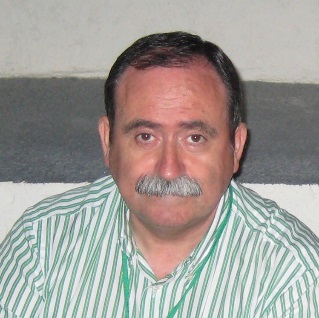Professor Pedro Gómez Vilda
 Facultad de Informática
Facultad de Informática
Universidad Politécnica de Madrid
Spain
Friday 21 November
11:00 to 12:00
Building A, Salón de Actos
Speech as a Vehicular Tool for Neurological Disease Monitoring
Abstract:
Modern Statistical Signal Processing and Machine Learning Techniques are opening a new research area of most relevance for Speech Technologies, which is the field of medical applications. Organic Larynx Pathology Detection and Grading is being successfully accomplished thanks to the advances produced during the last decade, and is becoming a reality nowadays. Neurological Disease Monitoring and Assessment is one of the emerging fields for its interest in the years to come, especially in relation with Neurodegenerative Diseases as Parkinson's, Alzheimer's, Amyotrophic Lateral Sclerosis, or other non AD Aging Dementias, among others. Neuromotor and/or cognitive degeneration behind these diseases need a systemic neuromechanical description, in terms of the different physiological organs involved in speech production, mainly in the laryngeal, naso-pharyngeal and oral subsystems. Possible strategies to collect observable acoustic correlates from the speech signal, in reference to specific biomechanical systems in larynx (vocal folds), pharynx (velopharyngeal switch) and mouth (lingual complex, jaw, lips), are described. Methodologies to associate acoustic correlates to neuromotor and neurocognitive activity by means of different Statistical Pattern Recognition Techniques are also commented. Results from different on-going studies are to be presented and discussed.
Speaker Bio:
Dr. Pedro Gómez Vilda was born at Burgo de Osma (Soria), Spain. He received the degrees of Communications Engineer (MSc. level), Universidad Politécnica de Madrid (1978), and Ph.D. in Computer Science, Universidad Politécnica de Madrid (1983). His professional and academic activities can be summarized as 1976-77: Scholarship from Nuclear Studies Center, Nuclear Energy Board, Spain; 1977-78: I+D Engineer, NORTRON Electronics; 1978-82: Assistant Teacher; 1982-88, and 1988-till now: Full Professor, Facultad de Informática, Universidad Politécnica de Madrid. His research lines are in Signal Processing, Speech Recognition, Biomechanical System Modeling, Bioengineering, Bioinformatics, Pattern Recognition, Neural Networks, Speech Perception and Production, Neuromorphic Brain Modeling, Forensic Sciences, and Neurological Disease Monitoring. Prof. Gómez-Vilda is author or co-author of 290 publications, including book chapters and journal articles with international referencing in ISBN and/or ISSN, and 105 conferences and lectures in different institutions and scenarios. He is currently Head of the Research Group on Informatics Applied to Signal and Image Processing, and director of the Neuromorphic Speech Processing Lab, Center for Biomedical Technology, Universidad Politécnica de Madrid. He is member of IEEE, Life Sciences Systems and Applications Technical Committee, International Speech Communication Association (ISCA), and European Association of Signal Processing (EURASIP). He is also scientific reviewer of IEEE Transactions on Circuits and Sistems, Neural Networks, Speech and Audio and Signal Processing, Speech Communication, the Journal of the Acoustical Society of America, Neurocomputing, Cognitive Computation, Computers in Medicine and Biology, Biomedical Signal Processing and Control, Electronic Letters, and Signal Processing Letters. He has been also Professeur Invité par la División de l’Enseignement Superieur et la Recherche, France, Enseignant-Chercheur invité par l’Université de Cergy-Pontoise, France, Gastwissenschaftler (Invited Professor) an der Universität Regensburg, Freeistaat Bayern, Germany, Honorary Professor of Technical University of Cluj-Napoca, Romania, and Doctor Honoris Causa by Technical University of Cluj-Napoca, Romania. He is co-author of three patents in Spain and the USA, and founding partner and scientific director of the start-up BioMetroSoft SL (www.biometrosoft.com), created in 2011 from a contest of ideas to promote technology-based companies.








